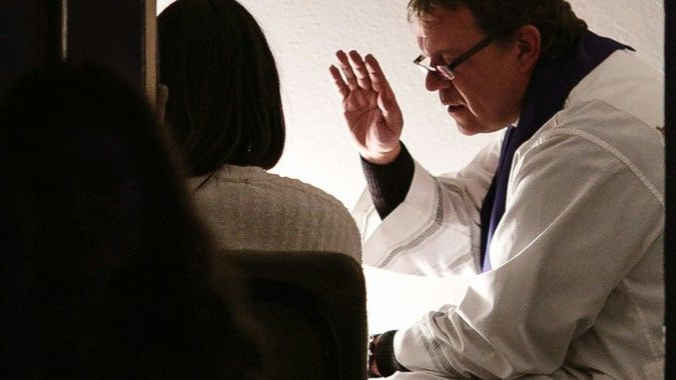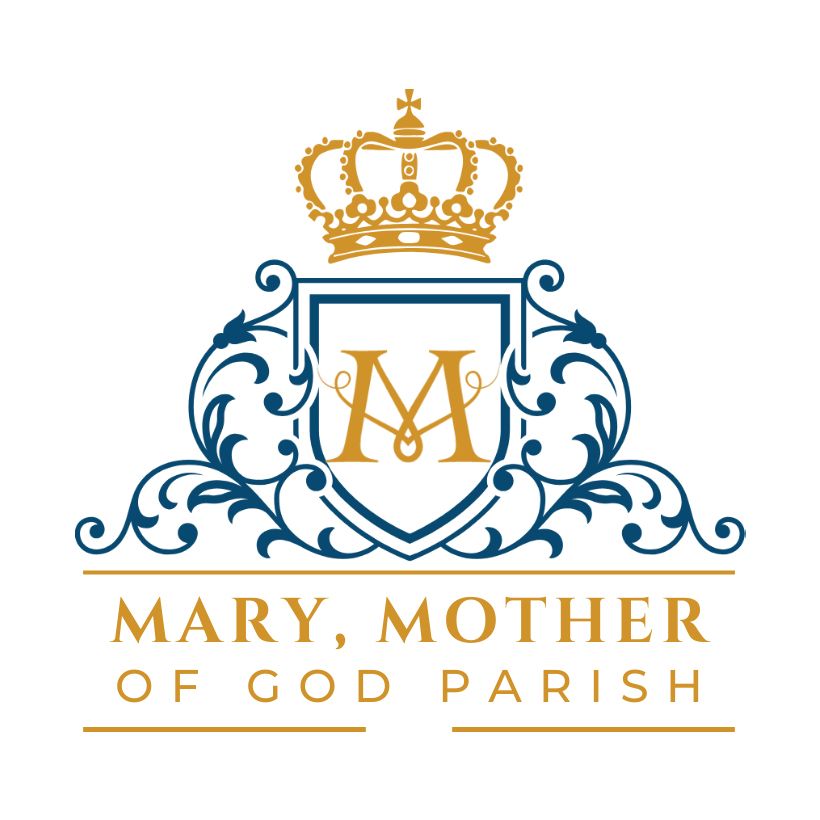Confession at Our Parish
Encounter God’s Mercy

The Sacrament of Reconciliation, also known as Confession or Penance, is a profound encounter with God's mercy.Through this sacrament, we acknowledge our sins, express genuine contrition, and receive absolution, restoring our relationship with God and the Church. Regular confession is a vital practice in the Catholic faith, offering spiritual healing and growth.
Confession Times
St. Patrick Church – Washington, IL
- Saturdays: 7:45 – 8:00 AM and 3:30 – 4:15 PM (Note: No confessions on Holy Saturday)
- By Appointment: Contact the parish office at (309) 444-3524 to schedule.
St. Monica Church – East Peoria, IL
- Saturdays: 3:00 – 3:45 PM
- By Appointment: Contact the parish office at (309) 694-2061 to schedule.
How to Go to Confession
Preparation: Spend time in prayer, reflecting on your actions since your last confession. An examination of conscience can be a helpful tool.
Entering the Confessional: You may choose to confess anonymously behind a screen or face-to-face with the priest.
Begin with the Sign of the Cross: Say, "Bless me, Father, for I have sinned. It has been [state the time] since my last confession."
Confession of Sins: Confess your sins openly and honestly.
Receive Penance: The priest will assign a penance to help you make amends and grow in your spiritual life.
Act of Contrition: Express your sorrow for sins and resolve to amend your life.
Absolution: The priest will absolve you of your sins, concluding the sacrament.
Stay connected with what’s happening across our parish.
Act of Contrition
"O my God, I am heartily sorry for having offended You. I detest all my sins because of Your just punishments, but most of all because they offend You, my God, who are all-good and deserving of all my love. I firmly resolve, with the help of Your grace, to sin no more and to avoid the near occasions of sin. Amen."
Stay connected with what’s happening across our parish.
Q & A from the Compendium
What are the essential elements of the sacrament of Reconciliation? (302)
The essential elements are two: the acts of the penitent who comes to repentance through the action of the Holy Spirit, and the absolution of the priest who in the name of Christ grants forgiveness and determines the ways of making satisfaction.
What are the acts of the penitent? (303)
They are: a careful examination of conscience; contrition (or repentance), which is perfect when it is motivated by love of God and imperfect if it rests on other motives and which includes the determination not to sin again; confession, which consists in the telling of one’s sins to the priest; and satisfaction or the carrying out of certain acts of penance which the confessor imposes upon the penitent to repair the damage caused by sin.
Which sins must be confessed? (304)
All grave sins not yet confessed, which a careful examination of conscience brings to mind, must be brought to the sacrament of Penance. The confession of serious sins is the only ordinary way to obtain forgiveness.
Common Questions
Why do we have to confess our sins to a priest?
During His public ministry, Jesus forgave the sins of many people. (see Matthew 9:1-8; Luke 7:36-50; John 8:1-11). It was such a prominent part of His ministry that it can rightly be said that He either had this ability or he was a liar. During His public ministry Jesus gave his apostles the authority to cast out demons and to forgive sins. In John 20:21-23 the risen Lord Jesus appeared in the locked upper room and told them: “As the Father sent Me, so I am sending you. Receive the Holy Spirit. Whose sins you forgive are forgiven them, and whose sins you retain are retained.” This power to pardon did not cease with the Apostles, because they consecrated bishops to continue the work of the Church until the end of time. This handing on of the authority given to the first apostles to each generation is called apostolic succession. It is difficult to imagine how the disciples were to determine which sins were to be forgiven and which were to be retained unless the person seeking forgiveness confessed his sins to the one charged with the power to forgive in the name of God. This understanding not only has Biblical roots, but can also be traced to some of the very earliest documents written by Church fathers during the apostolic period. When a person confesses his sins to a priest and receives absolution, through the promise of Matthew 18:15-18, the repentant sinner encounters Christ Himself.
Can a priest reveal the sins he hears in Confession?
No. Due to what is called the seal of confession the priest cannot ever tell others about the sins he hears in the confessional or even imply through his speech any connection between a person and any sins they confess. Throughout the history of the Church many priests have endured prison or worse at the hands of civil authorities who tried to get them to reveal what they heard in confession because they refused. In fact, Church law requires this of priest and the penalty for revealing someone’s sins heard in confession is the permanent loss of faculties (they can no longer validly perform any sacraments). “Given the delicacy and greatness of this ministry and the respect due to people every confessor, without any exception and under very severe penalties, is bound to maintain ‘the sacramental seal’ which means absolute secrecy about the sins revealed to him in confession.” (Compendium of the Catechism, 309)
What are the effects of this sacrament?
“The effects of the sacrament of Penance are: reconciliation with God and therefore the forgiveness of sins; reconciliation with the Church; recovery, if it has been lost, of the state of grace; remission of the eternal punishment merited by mortal sins, and remission, at least in part, of the temporal punishment which is the consequence of sin; peace, serenity of conscience and spiritual consolation; and an increase of spiritual strength for the struggle of Christian living.” (Compendium of the Catechism, 310)
When are Confessions at St. Patrick Church?
Saturdays 7:45-8:00am & 3:30-4:15pm
From the Compendium: What is the conscience?
What is the moral conscience? (372)
Moral conscience, present in the heart of the person, is a judgment of reason which at the appropriate moment enjoins him to do good and to avoid evil. Thanks to moral conscience, the human person perceives the moral quality of an act to be done or which has already been done, permitting him to assume responsibility for the act. When attentive to moral conscience, the prudent person can hear the voice of God who speaks to him or her.
How is a moral conscience formed to be upright and truthful? (374)
An upright and true moral conscience is formed by education and by assimilating the Word of God and the teaching of the Church. It is supported by the gifts of the Holy Spirit and helped by the advice of wise people. Prayer and an examination of conscience can also greatly assist one’s moral formation.
What norms must conscience always follow? (375)
There are three general norms: 1) one may never do evil so that good may result from it; 2) the so-called Golden Rule, “Whatever you wish that men would do to you, do so to them” (Matthew 7:12); 3) charity always proceeds by way of respect for one’s neighbor and his conscience, even though this does not mean accepting as good something that is objectively evil.
Contact Information
St. Patrick Church Office
St. Monica Church Office
We encourage all parishioners to partake in this sacrament regularly, embracing the grace and peace it offers.

